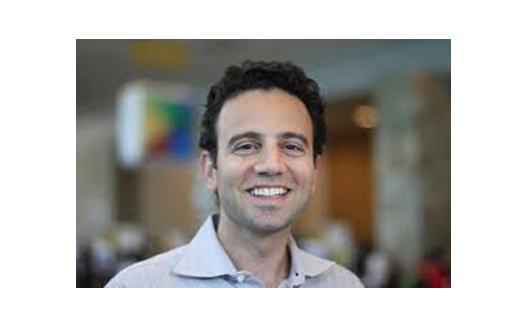6 Tips on Developing Games for Mobile, from Richard Rabbat of Zynga

 As Zynga looks to make a comeback by focusing on mobile,
developers in the Middle East may want to take notes on its tips
and tricks- whether or not the company succeeds.
As Zynga looks to make a comeback by focusing on mobile,
developers in the Middle East may want to take notes on its tips
and tricks- whether or not the company succeeds.
This week has been especially rocky for the ailing game developer.
First, their VP, Dan Porter, was quoted admitting that
Zynga copies games (although he later clarified that “everyone
in the games business copies games”).
After rumors swirled about a potential acquisition by Yahoo,
Zynga’s ailing stock jumped up, only to retreat quickly afterwards
as most realized that this was unlikely (especially because CEO
Mark Pincus has stated that he has
no intention to ever sell the company).
Yet despite the fact that Zynga
laid off 5% of its employees last October and
may have lost 130 million users since the end of 2012, it’s not
in the deadpool yet. A Q1 2013 revenue report that surpassed
expectations has given its stock price a boost, and its next moves
may be especially interesting for game developers in the Middle
East, as the company bets on mobile and international players.
After all, mobile isn’t just the future of Zynga, it’s the
future of gaming in the Arab world as well.
After launching
Farmville 2 last year in Arabic as well as 15 other languages,
Zynga released six new titles in the fourth quarter of 2012 that
included mobile versions of games that were previously web-only.
24% of its users currently play on mobile, a number that the gaming
company is looking to boost by scaling its mobile team from
20 to hundreds of employees.
Stock may still be trading at 60% of its IPO price, but if it
continues to axe dinosaurs like CityVille and create another mobile
game as popular as Draw Something, which they acquired along with
Omgpop, it might keep stakeholders in the game.
Lebanon's Man at Zynga
For American University of Beirut graduate Richard Rabbat, who grew
up in Lebanon, joining the Zynga team three years ago was an
exciting departure from Google, where things had become a bit
corporate- “there wasn’t that sense of emergency.”
Rabbat improved monetization for Google’s AdSense by 10%, helping
boost its global use. “When you deliver ads faster, it’s a
huge boon in international markets,” he says. After building
out Page Speed, a platform that allows developers to evaluate the
performance of websites, he came to Zynga to improve game
performance.
Now serving as a General Manager at Zynga, he’ll be at the heart of
its new experiments. “We think mobile is a huge growth
opportunity.” Yet, of course, he says, “social will be different on
mobile.”
With its back against the wall, Zynga likely won’t be afraid to do
whatever it takes to make revenue- including acquiring companies
that do well, which it has done successfully in the past. Rabbat
says they’d be open to acquiring a studio from the Middle East- “It
would depend on the opportunity.”
Here are his 6 tips for building mobile games:
- Keep your teams small. If you build a team
that's too big, your games will be expensive, says Rabbat. Small
teams can see changes in the market and adapt more quickly. This is
critical, as it's a dynamic space, and what works today might not
work in six months.
- Look at what's in the market and build upon those
ideas. This might not be as blunt as Porter’s assertion
that “all games are derived from other games,” but Rabbat points
out that those who enter the market with an utterly new idea have a
high risk of failure. By the time Farmville 2 launched, Zynga had
been in the farming genre for many years. The concept itself was
hardly original, but by starting with a base that people
understand, and innovating on social aspects, developers can find
success more easily.
- Continue to delight your users. This may seem
obvious, but gamers get bored. Quickly. “What’s more important than
the launch of a game is having a plan for keeping people engaged,”
says Rabbat. For Zynga, this means weekend challenges on games like
Words with Friends, or the release of new features, like snow
angels, that people come to the game to see.
- Focus on performance. Users can’t wait a whole
minute for a game to start, and they have even less appetite for
slowdown on mobile, says Rabbat. It’s tough to keep users engaged
when they are going through dead zones, or slow areas, like, well
Lebanon. And the responsiveness of the game is also critical. To
optimize games at Zynga, Rabbat runs experiments that compare
different cohorts of players to determine how performance drives
retention. Improving performance significantly improved
monetization on CityVille, he says.
- Don't consider smartphone and tablet the same
thing. “If you design a game for web and then bring it to
a tablet, you need to re-think the interaction,” says Rabbat.
“Replacing a click with a touch directly as a one on one
replacement will look foreign.” On tablets, designers should focus
on the interaction, and design separately for smartphones; the game
is simply different at different sizes. iPhone, he says, has been
the most popular platform for Zynga.
- If a game might not work, don’t launch it. No matter how much investment you’ve poured into a game, consider it a sunk cost, says Rabbat. “If you play-test the game, and it's not fun, go back to the drawing board. Don't think you might as well launch it. If people don't think it's fun, it won't succeed in the market. Never think about the time that you've spent on the game.”


